Let’s start with the numbers.
In 2015, for poetry specifically there were 26 reviews of 23 books by 20 authors. What this means is that we have a huge diversity in what you read and reviewed in 2015 which is actually quite a great thing because instead of more people reading one or two titles that proved popular, we have a lot more of you reading a lot more titles and finding more poets to love.
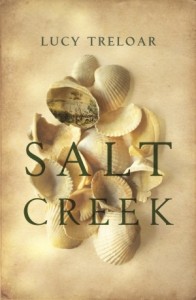 Lucy Treloar’s Salt Creek was the most popular collection of poetry with no less than four separate reviews of her work which is intriguing because much as I love the fact that you feel her use of language is lyrical, this book is a historical novel but four of you reviewed it and felt it read like a song and filed it under poetry, so there it stays, depicting life in the Coorong in 1855. Julie tells us that you could love this book so much that to get to the end and have to put it down feels like a betrayal which is certainly a strong emotion to feel about any novel (I am rather jealous in fact) and says a lot about Lucy Treloar‘s writing talent which can only serve to amaze us further since this is in fact her debut novel:
Lucy Treloar’s Salt Creek was the most popular collection of poetry with no less than four separate reviews of her work which is intriguing because much as I love the fact that you feel her use of language is lyrical, this book is a historical novel but four of you reviewed it and felt it read like a song and filed it under poetry, so there it stays, depicting life in the Coorong in 1855. Julie tells us that you could love this book so much that to get to the end and have to put it down feels like a betrayal which is certainly a strong emotion to feel about any novel (I am rather jealous in fact) and says a lot about Lucy Treloar‘s writing talent which can only serve to amaze us further since this is in fact her debut novel:
What a beautiful credible story. I didn’t want it to finish, I kept holding on to the thin threads of hope that bound this story together and held me captive to the very last page.
I even searched the acknowledgments and the author’s bio, in an attempt to find out more, something to hang onto and draw it out just a little bit longer. So reluctant was I to leave it, it almost felt like a betrayal, like I was somehow letting it down by turning the last page and closing the book…as though it couldn’t possibly be finished, that there ought to be more.
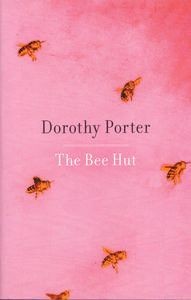 But moving on, the author with the most books reviewed was indeed Dorothy Porter for El Dorado, The Bee’s Hut, The Monkey Mask and the 100 Poems of Dorothy Porter collection. And her singular reviewer and ardent fan was Brona of Brona’s Books who nearly managed to wrest away the title of most prolific poetry reviewer from Jonathan Shaw but fell short by one review (Brona five, Jonathan six). Thank you Jonathan for your continued support of women writers. Meanwhile Brona shows us why Ms Porter proves so engaging:
But moving on, the author with the most books reviewed was indeed Dorothy Porter for El Dorado, The Bee’s Hut, The Monkey Mask and the 100 Poems of Dorothy Porter collection. And her singular reviewer and ardent fan was Brona of Brona’s Books who nearly managed to wrest away the title of most prolific poetry reviewer from Jonathan Shaw but fell short by one review (Brona five, Jonathan six). Thank you Jonathan for your continued support of women writers. Meanwhile Brona shows us why Ms Porter proves so engaging:
I don’t find it easy to review a book of poetry as I never read the poems in one sitting or in order. I pull out the pieces that speak to my mood of the moment. I return to favourites, I circle verses, underline words & asterix whole sections.
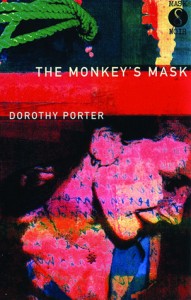 And as always, we have an idea of what poetry is like, what it can be about, and then et voila a poet will turn around and surprise you entirely as Dorothy Porter did with The Monkey Mask as Brona points out:
And as always, we have an idea of what poetry is like, what it can be about, and then et voila a poet will turn around and surprise you entirely as Dorothy Porter did with The Monkey Mask as Brona points out:
The Monkey’s Mask is part crime thriller (Jill is an ex-cop turned private eye), part sexy romp (Jill is a lonely lesbian), part romance (Jill falls in love), part poetry appreciation 101 (Jill’s case is a murdered poetry student).
Jill’s voice is ironic, brash and vulnerable “I’ve got no head for heights/but plenty of stomach/for trouble”.
There are times Jill sounds like a poetic Philip Marlowe!
And just like Marlowe’s cases you feel the tension rise. You can see the mystery unfold until you want to cry out “look out! behind you!”
A verse novel on crime? A detective story in rhyme? It now has a firm place on the list of books I must eventually get around to reading when I get to stop writing. Possibly even for the challenge.
But we should move on from poetry and head towards those other brief bits of entertainment, short fiction. Who read what this year?
It was in fact, an amazingly colossal year for short stories which even I am at a loss to explain. Were we too time poor this past year to read longer fiction? Is this a trend we will see rise? Perhaps it reflects an easier means of attempting the challenge? If you were one of the reviewers, tell us why you chose to read short fiction as well in 2015 in the comments because what we choose to read genre or form wise and why also says so much about us and the curious amongst us wish to know.
All reading regardless of form or genre is good reading here at AWW so don’t fret about that. But in 2015, we had 107 reviews of 67 books by 66 authors unless my maths is wrong though I think that would give us an unusually high margin of error if it was. 107 reviews is amazing. Thank you and keep reading and reviewing.
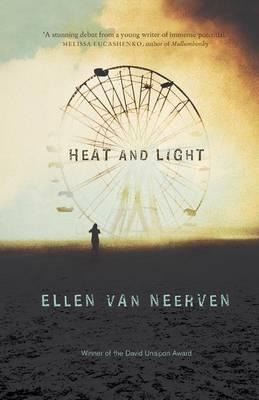 So who got top billing? Well at first i thought it was going to be Maxine Beneba Clarke with 7 reviews for Foreign Soil which is now becoming a much loved “AWW classic” as I term them but surprise, surprise, it was Ellen Van Neerven who stole the show with 7 reviews for Heat and Light AND one review for the inclusion of the Sweetest Thing in The Review of Australian Fiction.
So who got top billing? Well at first i thought it was going to be Maxine Beneba Clarke with 7 reviews for Foreign Soil which is now becoming a much loved “AWW classic” as I term them but surprise, surprise, it was Ellen Van Neerven who stole the show with 7 reviews for Heat and Light AND one review for the inclusion of the Sweetest Thing in The Review of Australian Fiction.
What is fantastic about Ellen Van Neerven‘s work being read by so many of you is that she is an Indigenous writer and this means that AWW is succeeding in its goal of getting more books by all sorts of diverse women writers out in front of readers to review, read and rediscover. And this is highlighted even more by Maxine Beneba Clarke being the close runner up. So an additional thank you to you all for choosing to read about different lives, viewpoints, ideas and worlds and characters. Thank you to you readers for being so adventurous and open minded. And we can see why you loved Ellen Van Neerven’s work as Sue of Whispering Gums points out: 
“Sweetest thing” is an edgy story. Serene’s unusual addiction works as a rather confronting metaphor for what all humans need – love and acceptance. What I like about Van Neerven, here and in Heat and light, is that her indigenous characters are not “types”. Their indigeneity is part of who they are, and is fundamental to the challenges they confront, but her characters are also “universal” – that is, they are needy, flawed characters who muddle along, just as the rest of us do, in the lives they find themselves in. It’s powerful stuff.
Heat and Light didn’t disappoint either according to Kelly at Orange Pekoe Reviews:
I loved the originality in the first section Heat. The author has really taken traditional indigenous story telling and turned it on its head. If you made a list of everything you would expect to find in a multi-generational indigenous story, I can assure you that you won’t find any of that here. Leave you preconceptions behind and slam the door on them! The problems and issues faced by the characters are clearly real but not not what I was expecting which made it a refreshing read. To transform a genre so much really should open it up to a wider audience (I hope, anyway). One one final note, telling the stories out of chronological order added to the reading experience.
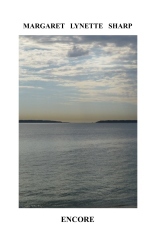 So who was the most prolific author with the most titles reviewed? that accolade goes to Margaret Lynette Sharp whose books Encore, Whatever it takes, Romance 50s Style, and Love Desire and Betrayal all got reviewed and here is Brenda with her take on Whatever It Takes:
So who was the most prolific author with the most titles reviewed? that accolade goes to Margaret Lynette Sharp whose books Encore, Whatever it takes, Romance 50s Style, and Love Desire and Betrayal all got reviewed and here is Brenda with her take on Whatever It Takes:
Lisa was a strong young woman, and the depth of her strength showed through the further I read through this novella. She was an easy character to like and get to know – the characters were well defined; the romance was light, the entertainment great.
And who was our reviewer extraordinaire this time around? Ms Brenda won that hands down with 12 reviews! Which means you definitely completed the challenge in 2015 so congrats!
As always if you wish to take part this year, sign up and get reading! And if you want suggestions for what to read you can see what has been previously read and reviewed in poetry and short fiction.
But more than that, thank you. Thank you for continuing to read, to review and promote and to support Australian women writers. I would like us to take these awesome numbers for 2015 and smash them into smithereens and do so much better by the end of 2016, so even if you don’t finish the challenge, just end us your reviews for this year and keep reading.
Thank you.
About me: Marisa Wikramanayake is a freelance journalist, writer and editor. She published her first book at 17, has lived on three different continents, been in ground zero of a bomb blast twice and is currently hibernating in Perth, Australia. She’s also been freaked out by the Scientologists, helped run a national publishing conference for the Society of Editors (WA) and currently sits on the WA Media Alliance committee. She is dangerous when bored, having terrorised educational institutions to finish an Honours thesis on Archaeology and a Masters thesis on Neuroscience and Science Communication. She penned book reviews for The West and science news and now writes and edits novels and dreams of fun cross platform media projects in the spare time that’s left over after painting, dancing, gaming and mentoring. She contributes her two cents as non-fiction editor at Australian Women Writers and lends her geek goddess expertise to the Guys Read Gals project. Feel free to badger her at her blog at marisa.com.au, on Facebook or tweet at her at @mwikramanayake






Great write up as usual, Marisa. And thanks for the link. I second your thanks to Jonathan who continues to read and contribute reviews of works that tend to be not the mainstream. It rounds out our challenge wonderfully.
I loved Brona’s enthusiasm for Porter during the year. And congrats to Brenda. Good job.
Finally, I’m loving seeing what seems to be a rising interest again in short stories.
Thanks for the fascinating round-up and the shout-out 🙂
Working in an Indy bookshop, as I do, I can tell you that there are some fabulous looking short story titles coming out this year by AWW.